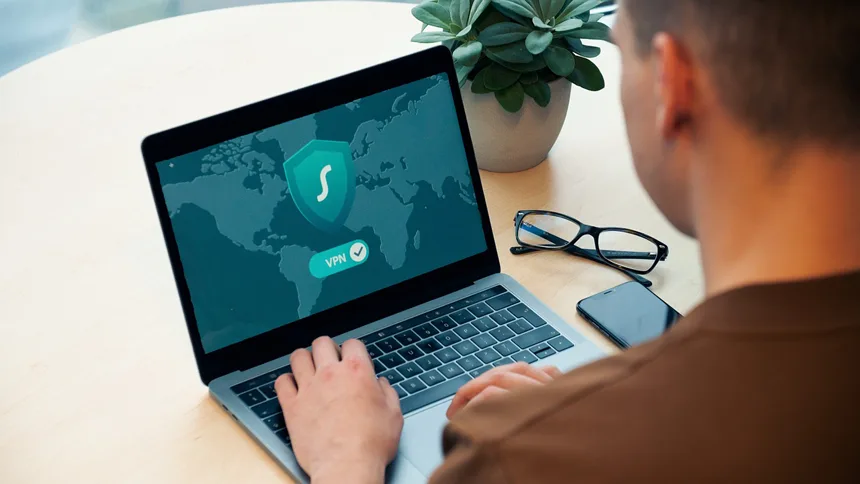When it comes to online privacy and accessing restricted content, two popular methods often come to mind: Location Spoofing and VPNs (Virtual Private Networks). Although they might seem similar at first glance, each serves distinct purposes and utilizes different techniques. Understanding the nuances between them is crucial if you want to make informed choices for your digital security and online freedom.
Quick Links
- What Is Location Spoofing?
- What Is a VPN (Virtual Private Network)?
- How Location Spoofing Works
- How VPNs Work
- Key Differences Between Location Spoofing and VPN
- Advantages of Location Spoofing and VPN
- Disadvantages of Location Spoofing and VPN
- Legal Considerations
- Impact on Internet Speed: Location Spoofing vs. VPN
- Choosing the Right Option: Location Spoofing or VPN?
- Best Practices for Using Location Spoofing & VPN Safely
What Is Location Spoofing?

Image Credit: Pixabay.com
Location spoofing involves tricking applications, websites, or online services into believing you’re accessing them from a different physical location. It usually involves faking your GPS coordinates or IP address, making it appear like you’re in a different city or country.
Common Methods for Location Spoofing
- GPS Manipulation: Some mobile apps allow you to fake your GPS coordinates.
- Browser Extensions: You can use proxy-based browser extensions to mask your location.
- Proxies: Tools that reroute your IP address through another server to spoof your location.
Reasons to Use Location Spoofing
People might opt for location spoofing to access region-restricted apps, bypass certain internet blocks, or even play location-based games like Pokémon Go. It’s an easy way to trick websites or applications into offering content meant for other regions.
What Is a VPN (Virtual Private Network)?

Image Credit: Pixabay
A VPN is a powerful tool designed not only to mask your location but also to secure your online activities. It works by creating an encrypted connection—often called a “tunnel”—between your device and a remote server operated by the VPN provider. This server can be located anywhere in the world, effectively changing your visible location while protecting your data.
How VPNs Enhance Security
- Encryption: VPNs encrypt all internet traffic, making it difficult for third parties to intercept or access your data.
- Privacy: Your real IP address gets hidden, enhancing online anonymity.
- Security: VPNs shield your data from hackers, especially on unsecured networks like public Wi-Fi.
How Location Spoofing Works
GPS Manipulation
Many spoofing apps can manipulate the GPS signals on your mobile device. This tricks apps into thinking you’re in a different place. Popular tools for this include Fake GPS apps on Android and Mock Location apps.
Modifying IP Addresses
Location spoofing can also involve changing your IP address using proxies. A proxy reroutes your web traffic, making it look like it’s coming from a different location. However, proxies lack the encryption features that VPNs offer.
How VPNs Work
Encrypted Tunnels
When you connect to a VPN, your device establishes a secure connection to a VPN server. All your data passes through this encrypted tunnel, making it unreadable to third parties.
VPN Servers and IP Masking
VPNs allow you to select servers in different regions, effectively masking your real IP address. This makes it look like you’re browsing from a completely different location, bypassing geo-blocks easily.
Key Differences Between Location Spoofing and VPN
Privacy Concerns
- Location Spoofing: Primarily focuses on faking your location. It doesn’t hide your browsing activity or encrypt your data.
- VPN: Encrypts your entire internet traffic, offering true privacy and hiding your online footprint.
Security Aspects
- Location Spoofing: Doesn’t offer robust security. Data leaks are possible.
- VPN: Offers high-level security by encrypting your data, especially beneficial when using public networks.
Ease of Use and Setup
- Location Spoofing: Generally easier and quicker to set up. Simple apps or browser extensions are enough.
- VPN: Requires subscription to a VPN service and installation of software. Slightly more complex but offers greater protection.
Advantages of Location Spoofing and VPN
Location Spoofing
- Access Region-Restricted Content: Great for viewing content only available in specific countries.
- Games and Apps: Ideal for tweaking location-based games.
- Simple Setup: Usually requires minimal effort, often just an app or extension.
VPN
- Encryption: Ensures your data stays private, even on public Wi-Fi.
- Bypass Geo-Blocks: Access global streaming libraries reliably.
- Secure Transactions: Adds an extra layer of security when performing online transactions.
Disadvantages of Location Spoofing and VPN
Location Spoofing
- No Encryption: Your data remains unprotected.
- Risk of Bans: Some platforms may penalize or ban users for spoofing.
- Limited Privacy: Does not hide browsing activity or online footprint.
VPN
- Potential Slowdowns: Encryption can reduce browsing speeds.
- Cost: Premium VPNs come with a subscription fee.
- Legal Restrictions: In some regions, VPN usage may be restricted.
Legal Considerations
Location Spoofing Legality
Location spoofing is generally legal, but specific services may enforce rules against it. Platforms like gaming or streaming services might ban users caught spoofing.
VPN Legality
VPNs are legal in most countries, but a few restrict or ban their use. Always check local laws before using a VPN, especially in restrictive regions.
Impact on Internet Speed: Location Spoofing vs. VPN
- Location Spoofing: Usually doesn’t affect speed unless using proxy servers.
- VPN: Encrypting data can slow down internet speeds due to additional processing.
Choosing the Right Option: Location Spoofing or VPN?
Your choice should be based on your goals:
- Choose location spoofing for simple tasks like playing games or accessing region-locked apps.
- Opt for a VPN if your priority is privacy and security, especially when handling sensitive data or using public Wi-Fi.
Best Practices for Using Location Spoofing & VPN Safely
Location Spoofing
- Choose Trusted Apps: Use reputable spoofing apps to reduce risks.
- Stay Updated: Keep apps updated to avoid detection.
- Check App Permissions: Avoid giving unnecessary permissions.
VPN
- Select a Reliable Provider: Choose a VPN known for privacy and no-log policies.
- Use Closest Server: For better speeds, select a VPN server close to your location.
- Keep Your VPN Software Updated: Regular updates improve security.
Conclusion
Location spoofing and VPNs offer different levels of privacy, security, and ease of use. If you want quick access to restricted content, spoofing might be enough. However, if your priority is protecting personal data and maintaining online anonymity, a VPN is the superior choice. Choose wisely based on your needs and understand the limitations of each tool.
When you purchase through links on our site, we may earn an affiliate commission. Read our Affiliate Policy.





